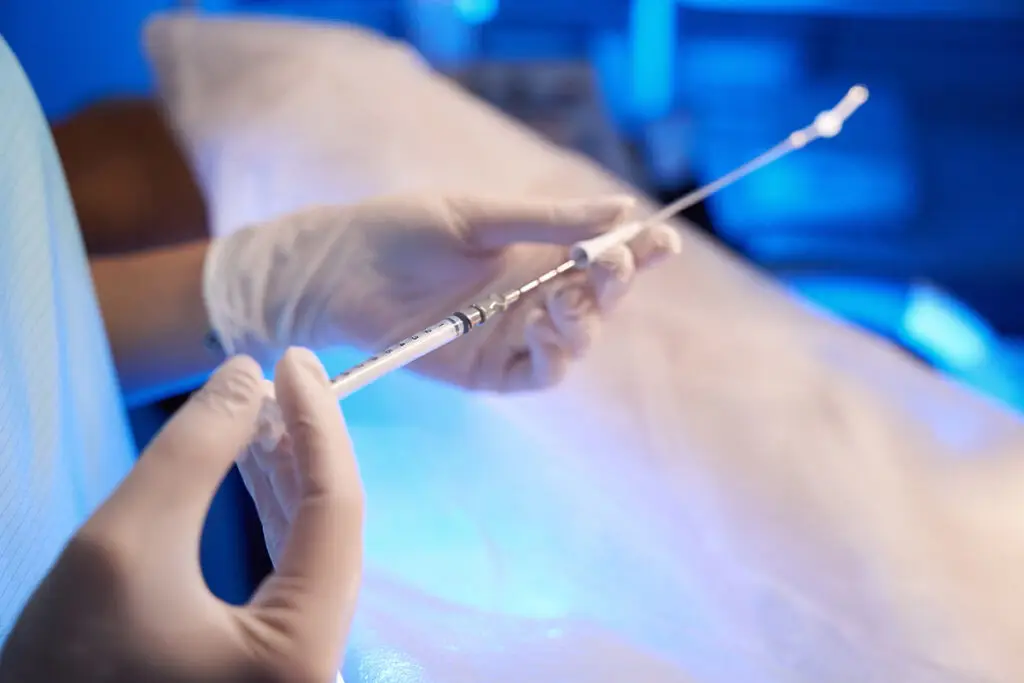Approximately 8%–15% of couples are unable to conceive after one year of unprotected intercourse.
Male factor is solely responsible in 20% of infertile couples and contributes in another 30% – 40% of couples. Male infertility factor is often defined by abnormal semen parameters but may be present even when the semen analysis is normal.
What are the treatment options?
Hormonal, surgical and other medical treatment options are available for male factor infertility. To precisely select a treatment, accurate diagnosis is critical. The semen analysis provides information on semen volume as well as sperm concentration, motility, and morphology. Generally, infertile males are suffering from low sperm counts, low motility, poor sperm morphology or all of these factors together. Oligozoospermia (<5 million/mL), asthenozoospermia (motility <40%) and teratozoospermia (normal forms <4%) are major problems within sperm parameters.
Azoospermia is defined as the absence of sperm in the ejaculate. About 1% of the general population and 10-15% of infertile men suffer from azoospermia. Men with nonobstructive azoospermia or severe oligozoospermia (<5 million/mL) are at increased risk for having a definable genetic abnormality and should be offered karyotype and Y-chromosome analysis before performing ICSI with their sperm.
For oligo-astheno-teratozoospermic (OAT) males, varicocele treatment and hormonal induction treatments can be applied following urologic investigation.
For azoospermic males, many sperm retrieval methods have been described. Particularly for non-obstructive azoospermia (NOA) cases, the method of sperm retrieval may also be critical in the management. Overall successful sperm retrieval rates are 35%-50% in NOA cases, especially for Microdissection Testicular Sperm Extraction (mTESE) procedures, in which surgeons use a microscope to identify sperm in the testicles which can then be surgically retrieved. In failed mTESE cycles, an empirical and novel Round Spermatid Injection (ROSI) technique has also been defined by a group of researchers in Japan (Tanaka et al 2015). Accumulating and injecting round spermatids under electrical activation of eggs has successfully resulted in live births.
In Centrum Clinic IVF Center our overall sperm retrieval rate is 45% for NOA cases. Most importantly, we have been using the novel ROSI technique by using PIEZO electrical activation for those with failed mTESE cycles, as described previously by Dr. Tanaka (2015) from Japan. In collaboration with Dr. Tanaka and his team since 2016, we have documented more than 50 deliveries. However, overall pregnancy rates are still low (1%) despite all innovations.
Who is it for?
Men suffering from oligozoospermia (<5 million/mL), asthenozoospermia (motility <40%) and teratozoospermia (normal forms <4%) are major subgroups. Also, severe OAT males and azoospermic males are best candidates for these treatments, including obstructive or non-obstructive azoospermia cases.
For non-obstructive azoospermic males, careful urological examination is crucial. The first line treatment is mTESE (with 30-50% success rate), and the novel ROSI treatment is another option with limited success rates for those with failed mTESE procedures.
How can NOW-fertility facilitate it?
In many countries when mature sperm cannot be obtained during testicular sperm extraction, patients are often left with limited options, such as the use of donor sperm. Patients who prefer to consider other options can be provided with information about the novel ROSI technique. Patients who wish to undergo ROSI or IVF/ICSI at Centrum Clinic IVF Center can have their consultations virtually and ultrasound monitoring close to home, both arranged by NOW-fertility, which means that a shorter stay in Turkey will be needed. At Centrum Clinic IVF Center our aim is to work in coordination with NOW-fertility in order to meet all the needs of our patients.
Where can it be carried out?
Centrum Clinic IVF Center has an experienced laboratory team and all the necessary equipment for the application of the ROSI technique, which we have been implementing since 2016. Our multilingual team takes great care of our international patients throughout their treatment, making the experience comfortable and as stress-free as possible. Our centre has the International Health Tourism Authorisation Certificate.
Author: Centrum Clinic IVF Center
Centrum Clinic IVF Center, our partner clinic in Turkey, was established in 2002 and is accustomed to welcoming international patients, with a range of services to make travelling for IVF treatment easier.
Are you concerned about your fertility?
If you would like to speak with a NOW-fertility expert to learn more about how we can help, then please click below to get started.




